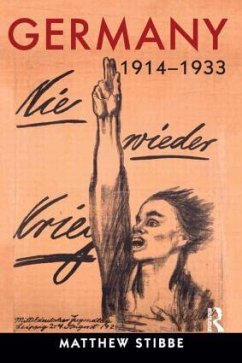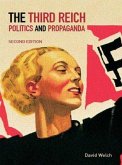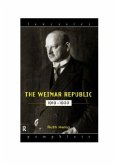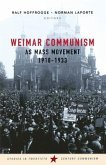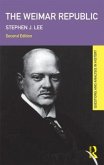Germany, 1914-1933: Politics, Society and Culture takes a fresh and critical look at a crucial period in German history. Rather than starting with the traditional date of 1918, the book begins with the outbreak of the First World War in 1914, and argues that this was a pivotal turning point in shaping the future successes and failures of the Weimar Republic. Combining traditional political narrative with new insights provided by social and cultural history, the book reconsiders such key questions as: How widespread was support for the war in Germany between 1914 and 1918? How was the war viewed both ?from above?, by leading generals, admirals and statesmen, and ?from below?, by ordinary soldiers and civilians? What were the chief political, social, economic and cultural consequences of the war? In particular, did it result in a brutalisation of German society after 1918? How modern were German attitudes towards work, family, sex and leisure during the 1920s? What accounts for the extraordinary richness and experimentalism of this period? The book also provides a thorough and comprehensive discussion of the difficulties faced by the Weimar Republic in capturing the hearts and minds of the German people in the 1920s, and of the causes of its final demise in the early 1930s. Matthew Stibbe is Reader in History at Sheffield Hallam University. He has published widely in the field of First World War studies and modern German history, and his books include British Civilian Internees in Germany: The Ruhleben Camp, 1914-18 (2008) and Women in the Third Reich (2003).
Hinweis: Dieser Artikel kann nur an eine deutsche Lieferadresse ausgeliefert werden.
Hinweis: Dieser Artikel kann nur an eine deutsche Lieferadresse ausgeliefert werden.

